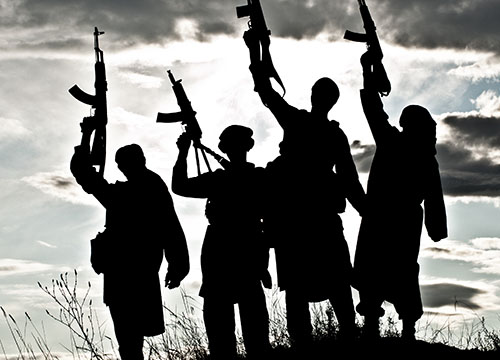Unique book maps jihadism in Scandinavia - interviews with jihadists and IS fighters
Jihadism in Scandinavia has now been mapped in a unique book by Marco Nilsson, docent in political science at the School of Education and Communication at Jönköping University. Nilsson researches on violent conflicts in international politics and he has now published a book, ”Jihadism in Scandinavia – Motivations, Experiences, and Change”, in which he summarizes, maps and develops several years of research on jihadism.

Marco Nilsson has interviewed active and former jihadists, including IS fighters. For his research, he has also interviewed those connected to jihadists such as recruiters, friends and acquaintances. He has compared the former jihadists who fought in Bosnia and Afghanistan with those who are fighting in Syria.
“With the civil war in Syria and many foreign travelers to the country, jihadism became an important social phenomenon in Sweden as well. Hundreds traveled to Syria from Sweden, but we did not know much about the motives of the jihadists and how they were affected by the war. We also didn't know if or how these Syrian travelers were different compared to the previous generation of Swedish jihadists,” says Marco Nilsson.
Closed world
The book focuses on how jihad changes the jihadists and how jihadism itself has changed. Nilsson believes that there are generational differences between the jihadists' behaviors and ideas. With the war in Syria, the jihadist movement has been radicalized with, for example, stronger apocalyptic ideas and greater tendencies to declare other Muslims as apostates.
“The most difficult thing was getting hold of jihadists. Their world is quite closed and in order to conduct interviews I needed to spend a lot of time getting to know people who would hopefully help me meet both active and former jihadists,” he says.
He believes that radicalization and de-radicalization are connected. To better understand how a person can be de-radicalized, one must understand what motivated him or her to join a jihadist group in the first place, and how he or she has been affected by the socialization processes in the jihadist group.
“What surprised me the most was that, once I got in touch with possible interviewees, they were quite open and willing to talk about their experiences, especially the former jihadists. Active jihadists were more reserved, which is understandable because they were still in the middle of the radicalization process,” concludes Marco Nilsson.
